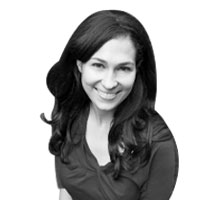What happens when high-powered women decide they deserve an alternative to the World Economic Forum’s annual meeting in Davos? The Women’s Forum for the Economy & Society’s Global Meeting is launched. The Forum met in Deauville, France, last week, a sui generis concept that brings together African foreign ministers, the president of an American biomimicry firm (they use nature to design products), the first Muslim astronaut, editors from the International Herald Tribune and Elle France, corporate CEOs, sculptors, bestselling Turkish authors, and delegations from five continents, just to name a few members of this emerging brain trust.
“When I applied to go [to Davos], only 5 percent of the attendees were women,” says Aude Zieseniss de Thuin, founder of the Women’s Forum for the Economy & Society.
The Global Meeting is Davos in high heels—Christian Louboutins, that is. Deauville, the Nantucket of France, has become the place for anyone who is anyone in Europe. But word is spreading fast. Publicis, one of the largest advertising agencies in the world, owns a share in Davos, and just bought a 50 percent stake in the Women’s Forum. Davos Shmavos.
Now in its fifth year, The Women’s Forum was birthed accidentally. Aude Zieseniss de Thuin, the founder and CEO, spent most of her life as an entrepreneur in France. In 2000, she applied to go to Davos, but never heard back. Her friend, who had been attending for years, broke the news to her: “I don’t think they want you to come.” Davos, a sleep-away camp for the crème de la crème of government and business, is also an old boys’ club. “When I applied to go, only 5 percent of the attendees were women,” Zieseniss de Thuin told The Daily Beast.
“So I asked myself, ‘Is it possible to change the world without women?’” No. So this year more than 1,000 participants, including 200 women from developing countries and 150 men, representing more than 500 companies and five continents, gathered in a conference center outfitted entirely by high-end, mauve Ikea-like furniture (this was no Javitz Center) to kibitz about the global state of affairs over Pommery, croissants, and petits fours.
The idea for the conference, Zieseniss de Thuin says, is to convene people with deep expertise, but who want to listen to each other. “I don’t want a lot of experts who like listening to the sound of their own voice.”
What’s unique about The Global Meeting, as opposed to the garden-variety women’s conference, is that it takes a broader approach. This is no ghetto for women’s issues. In fact, many of the sessions didn’t even mention “women” in their title. Rather, they focused on topics like good governance, the new global business environment, and restoring hope, risk, and entrepreneurship in the midst of a recession. Ghassan Salame, a professor of international relations at the Institut d’Études Politiques in Paris, posed the philosophical question: “Do we still need an enemy?” Barry Schwartz, a professor of social theory and social action at Swarthmore College, talked about a new framework for morality.
But is it really necessary to have a women’s forum, with so many other pressing issues nipping at our heels: climate change, the global financial crisis, and a war in Afghanistan? “Yes, it’s definitely necessary. There is still a lot of progress to be made,” says Tian Wei, a presenter on CCTV in China, alleging that the American stimulus package did not do enough to lift up women.
The National Council on Research for Women launched their global report, ”Women in Fund Management,” which highlighted the dearth of women in investment-management positions.
But while there was a healthy dose of lip-service to “women’s issues,” there was also an unusual amount of candor and irreverence. Ngozi Okonjo-Iweala, managing director of the World Bank in Nigeria, implored people to stop thinking of Africans as victims. “The world needs to start thinking of Africa as 1 billion consumers, not just as a worn-torn country with HIV,” she said.
As for irreverence, Anne Lauvergeon, the CEO of Areva, one of the largest power companies in France—named the third most powerful woman in Europe by Forbes—told the audience it’s past time women in high-powered positions stop being thrown the same battery of questions about children, marriage, and work/life balance.
But was this just another example of women preaching to the choir? Yes and no.
At last year’s Global Meeting, for example, after the president of Coca-Cola's Europe group presented its initiative to get more women into the management pipeline, Michel Landel, the CEO of Sodexo, a food-services company that employs 355,000 people in 80 countries, was scribbling notes under the table. Those notes morphed into Sodexo’s own women’s initiative to achieve 23 to 25 percent female representation in its top 300 positions by 2015.
Despite its name—The Women’s Forum—The Global Meeting is not an all girls' clubhouse. Carlos Ghosn, CEO of Renault Nissan, and Bernard Fornas, president and CEO of Cartier France, are loyal attendees. And why wouldn’t they be?
With women making the majority of purchasing decisions and becoming the predominant gender in the workforce, no company can afford to ignore what women want and think. The new paradigm in many places is women hold up the whole sky, not just half.
“Women are indispensible now,” says Zieseniss de Thuin. “This is the time for women.”
Hannah Seligson is a journalist and the author of New Girl on the Job: Advice from the Trenches. Her second book, A Little Bit Married , will be published by De Capo this winter. Her Web site is www.hannahseligson.com






